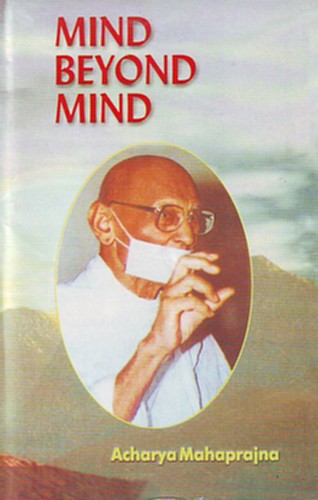
Jayacarya was the fourth Acarya of the Terapanth sect. Before he became the head of the Order, he went to Pali and put up in a small shop on the roadside. A troupe of acrobats came there and began to give a street performance before the shop. Hundreds of spectators gathered to witness the performance, which lasted for an hour or so. The monk sat quite and motionless and was not at all attracted by the performance. He did not even look towards it. One of the spectators who watched the concentrated monk for the whole of the duration of the performance remarked, 'The Terapanth will continue to be a living organization for a whole century because of such monks. See, the performance of the acrobats did not distract him at all. He sat completely composed and did not even turn his eyes towards the performers. It is wonderful!' Why did the monk remain absolutely indifferent to the world around him? It is because he had raised himself above tile pleasurable attractions of things around him. He was all the time wandering in another world, which was more valuable for him than anything else. It is a common experience that we are attracted towards things, which give us joy. Once our interest becomes diverted from them, they cease to give us joy any more. We become attracted towards new horizons. Let me give another anecdote about another monk of the Terapantha sect. He was a disciple of Acarya Bhiksu. He was named Sitadasa. Whenever another monk informed Sitadasa that the Acarya had called him, he would fold his hands together instinctively as a mark of respect for his preceptor. He would imagine himself standing with folded hands before the preceptor. This conditioned reflex had become a second habit with Sitadasa. He would even forget that he was holding something with his hands, which will drop the object and become folded. He had raised his mind to a higher spiritual plane.
Sadhana means the uplifting of the mind to a spiritual state in which the practitioner becomes indifferent to the attractions of the world. A new area of interest comes into being for him. This is the mental state of steadfast concentration. In technical language it is called Manas Samadhi or Citta Samadhi. The practitioner in this state gets rid of a number of worries. Discontentment, predilections, desires, and cravings leave him once for all.
This can be possible only when the ideal for which we are striving is a noble ideal. Every or any ideal would not do. Of course, one may concentrate on any ideal, high or low. The mental process may be directed to any direction. The mind thus diverted may produce energy in the practitioner's body and mind. But if it is the outcome of the diversion of the mind towards an ignoble ideal, the accumulated energy will explode resulting in disaster. If the ideal is noble the explosion will occur on a higher spiritual plane of the practitioner's being and will be highly valuable. An upright character achieves many a good thing.
One thing may, however, be noted very carefully. Concentration of mind does not produce immediate results. It needs time to do so. The practice of the concentration of mind will produce its consequences only in due course of time. The seed, which has been sown, takes time to sprout and grow into a tree. This principle applies to Sadhana also.
The last question to be considered is: How to concentrate the mind? It is a natural question in view of the fact that the mind is fickle. By its very nature it cannot remain steadfast. How can we change the fleeting states or the mind into a single consolidated process? It is a fact that the mental processes will not begin to flow towards a single direction and be poised on a single object until the mind has been refined and purified. How to refine and purify the mind? Practice in the regulation of respiration is one of the means to achieve this end. It pays dividends. You may concentrate the mind on the lips or on the end of the nose, which are the feeling points of the friction of the breath. You should feel the incoming and outgoing breath. This will enable you to practise long breathing. You may practise long breathing as long as you like. Ultimately you will come to feel that the mind, which had been carrying the burden of the accumulated effects of past experiences, of thoughts and feelings of the present and of future expectations, has become lighter. Such a light mind can be diverted to any channel. Ultimately it will become concentrated.
 Acharya Mahaprajna
Acharya Mahaprajna

